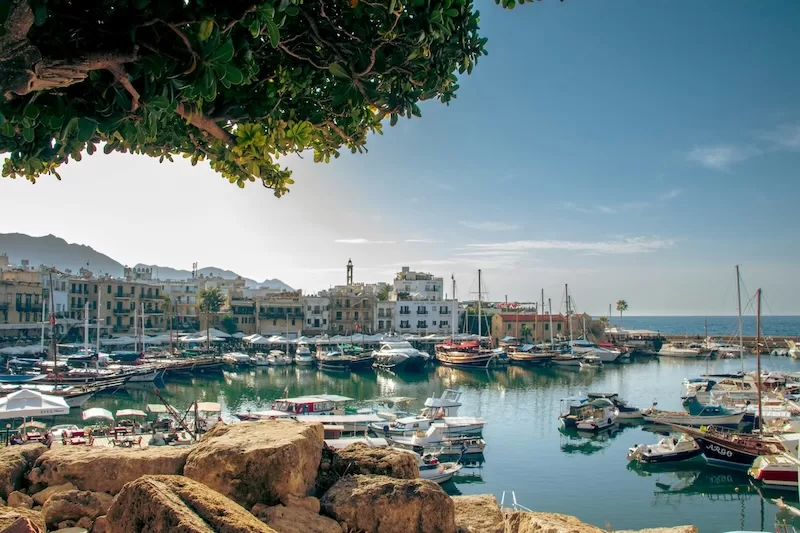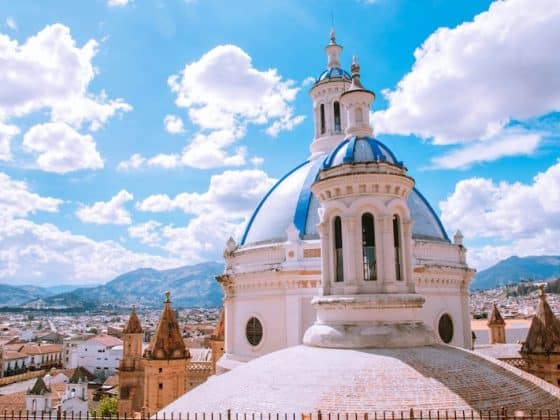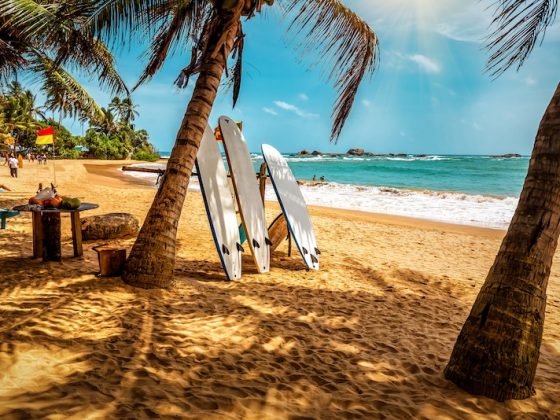Introduction
The first signs of belonging in Cyprus reveal themselves slowly. A shopkeeper greets you in Greek, then switches to English without missing a beat. Children walk home from school with backpacks and bakery pastries. You look up and there is always a sliver of sea or mountain in view. A day here does not feel rushed. It feels measured.
People drawn to the island often carry the same hope: keep a European quality of life while escaping the price tags and winter chill of the north. But living in Cyprus is more than a weather upgrade. Residency rules, job choices, school options, and transport realities all shape the long-term experience. The fantasy becomes possible through planning.
This guide gathers the information needed before committing to the change. Housing costs, the numbers behind healthcare and schooling, community life, visa options and the beats of everyday living. By the end, you will know how Cyprus works as a place to build a life, not just spend a week.
Why Choose Cyprus for a Lifestyle Shift
A climate that shapes your routine
Cyprus has about 300 sunny days per year. Afternoons are long enough for beach dips after work. Winters are short and mild, with café life continuing outdoors. The weather allows everyday habits to change. More mornings outside. More exercise without planning. More social time by the sea.
A sense of community that blends familiarity and discovery
English is understood widely. Supermarkets stock familiar brands. International schools exist in every major region. Yet Greek culture infuses life with new traditions: village festivals, Sunday family roasts, hospitality shown through food and conversation. There is novelty without dislocation.
EU benefits with a Mediterranean vibe
Living in Cyprus gives expats access to an EU economy classified as high-income. Reliable banking systems, healthcare regulation and legal protections support long-term security. At the same time, the island remains approachable. Driving across it takes just a few hours. Local business owners still remember regular customers by name.
Financial appeal and tax structure
The cost of living in Cyprus is generally lower than in much of Western Europe. Housing costs less than in urban centers like Dublin or Amsterdam. Tax arrangements for foreign income can be favorable. Remote workers, freelancers and retirees often find the island aligns comfort with financial logic.
Nature, leisure and cultural depth
From the Troodos mountains to rocky coves near Ayia Napa, nature stays close. History is tangible: Roman villas in Paphos, Venetian walls in Nicosia, ancient harbors once ruled by kingdoms and empires. Free time expands because travel time shrinks. Weekend escapes rarely require planning.
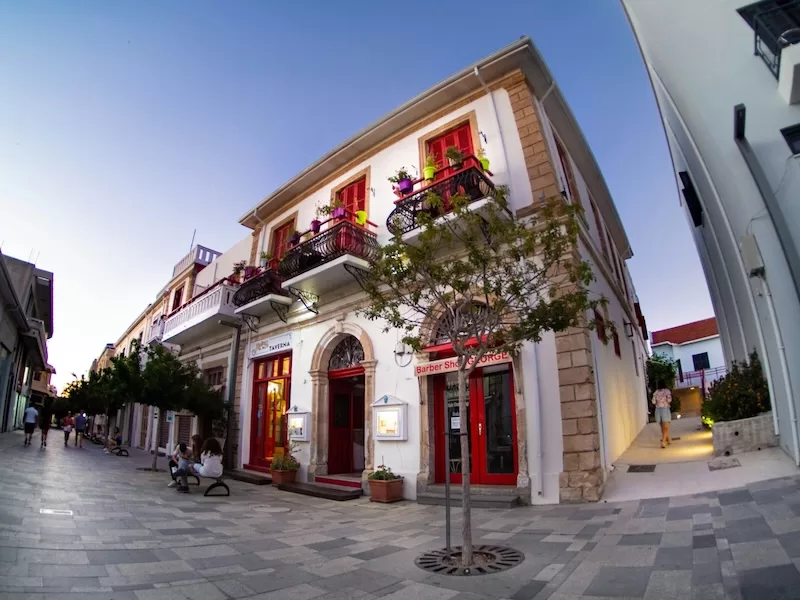
The Cost of Living in Cyprus
Housing and rent by city
Housing forms the largest single expense when living in Cyprus. In cities like Limassol, one-bedroom apartments in city-center locations run €800-€1,200 per month for many rentals. In Nicosia the mix is somewhat more moderate: one-bed flats might average €700-€1,100. Paphos tends to offer more space for less money. Coastal one-bedrooms can often be found below €900, and properties a short drive inland dip further, giving families room to stretch without stretching their budget. For families and three-bedrooms, prices rise significantly, and more premium coast-front or tourist-zoned properties carry a large premium. According to one study, a family of four planning “comfortably” could expect a monthly budget of around €3,500-€4,500 in many cases. Buying property is also quite possible. For example, apartments might cost €1,800-€3,000 per square meter in some south-Cyprus city-center locations.
Utilities, food and transport
Beyond rent, the day-to-day matters. Utilities (electricity, water, internet) for a single person might run around €200 per month in summer months in a modest flat. Electricity costs rise in summer when air conditioners work overtime, and in winter when older homes rely on portable heaters. Homes with better insulation and cross-breezes help keep cooling needs down. Coastal places like Larnaca often enjoy evening winds; inland cities run warmer at night.
Food is slightly above the EU average on many products, especially those imported. But local produce flips the equation. Weekly markets in Paphos, Nicosia and Limassol overflow with tomatoes, cucumbers, citrus fruit and herbs sold by the kilo for far less than packaged alternatives.
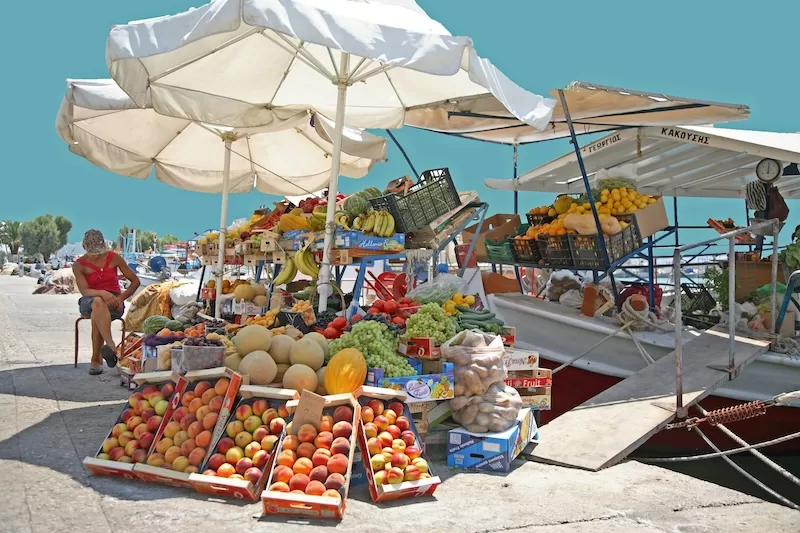
Many expats find themselves cooking with more vegetables and fewer packaged goods simply because they taste better and cost less. Dining out can be pleasantly affordable too: souvlaki lunches, meze dinners with friends, and iced coffee by the sea.
Public transport is functional for certain routes, but limited for late nights, weekend excursions and residential neighborhoods. Taxis and ridesharing help fill the gaps, though not at every hour. A car changes your experience: errands become short scenic drives instead of day-planning exercises. Parking is usually easy in suburban areas, more competitive near lively coastlines and historic centers. Fuel is a regular but manageable cost because travel distances stay small.
Healthcare and education expenses
Healthcare in Cyprus is covered under the national scheme known as GeSY (General Health System) for those eligible. Private care is common among expats. For an expatriate family, planning a monthly budget of €200-€300 for insurance is sensible. Education, especially international school tuition, must be factored in heavily if relocating with children: fees often run from €6,000 to €20,000 per year.
Visas, Residency and Working as an Expat
Residency options for EU and non-EU citizens
For nationals of EU member states, relocating to Cyprus is relatively seamless. Once you arrive, registering as a resident usually means completing local formalities, securing proof of sufficient income or employment, and obtaining a registration certificate from the authorities. For most EU move-ins, that’s all it takes to settle in and access many of the services available to locals.
For non-EU nationals the pathways split depending on your purpose, income and investment profile.
Some of the common routes:
- Temporary residence permit (“Pink Slip”): This allows a stay beyond the standard 90-day visa period, often applied to those with foreign income, but it does not automatically confer the right to work locally.
- Permanent residence permit / Immigration Permit: Under the Immigration Permit route, non-EU citizens who meet specific investment, income or real-estate criteria may obtain long-term residency. The official immigration department sets out requirements for entry under these schemes.
- Permanent residence by investment: You can apply for permanent residency by investing at least €300,000 in real (immovable) property or shares and having an annual income of €50,000. The amount is increased by €15,000 for a spouse and by €10,000 for each child.
- Rules for self-sufficiency or retirement: As an EU citizen you can settle in Cyprus without major restrictions, provided you register with the migration authorities within four months of arrival and secure the registration certificate for Union citizens. For US citizens and other non-EU nationals there are long-stay options. The Category F permit requires proof of reliable foreign income; the temporary “Pink Slip” permit offers an alternative route. One guideline suggests retirees may need around €24,000 per year of stable foreign income to qualify.
Key practical points to keep in mind:
- Residency permits often allow your spouse and dependent children to apply simultaneously.
- Some routes (e.g., investment-linked) may require you to buy or lease property at minimum thresholds or hold certain assets.
- A permit gives you the right to live in Cyprus, but not necessarily full working rights unless explicitly allowed by the permit category.
- Always check the latest regulations via the official portal of the Minister of Interior of Cyprus or immigration department, since rules evolve.
Tax regime and income streams
Tax planning is often one of the deciding factors when choosing to relocate. In Cyprus you’ll find a mixture of favorable elements plus important considerations for income, residency status and domicile.
How do you become a tax resident?
- The “183-day rule” says you’re resident if you spend more than 183 days in Cyprus in a calendar year.
- The “60-day rule” is more flexible. Provided you spend at least 60 days in Cyprus, do not stay more than 183 days in any other single state, are not tax resident elsewhere, and maintain a permanent residence in Cyprus (owned or rented), you may qualify.
What tax benefits might apply?
- Individuals considered tax resident in Cyprus but non-domiciled may be exempt from tax on dividends and interest income from abroad.
- No inheritance tax, no wealth tax, and capital gains tax generally applies only to property in Cyprus (or shares in companies whose underlying assets are Cyprus real estate).
- For overseas pensions the tax regime allows an option: for example, the first €3,420 is exempt, and amounts above may be taxed at 5 % under certain rules.
- For employees earning substantial salaries (above €100,000) who relocated and were not tax residents in Cyprus in the past, a 50 % deduction of income may apply for up to 10 years (subject to conditions).
Practical caveats for remote income or passive income earners
- If you work remotely (earning from abroad) while living in Cyprus, check how your home country treats foreign-source income, and whether double tax treaties apply.
- Registering with the Cyprus tax department early is wise. If you become tax resident, you’ll typically declare worldwide income (though many exemptions apply).
- Having local ties (e.g., a permanent residence, business directorship or employment) helps clarify residency under the 60-day rule.
- Even with attractive tax benefits, “tax efficient” does not mean “zero tax.” Legal, proper advice is vital.
Where Expats Live: The Most Welcoming Cities in Cyprus
Choosing the right city shapes the entire experience of living in Cyprus. Each region has its own social vibe, cost profile and daily background music. Below is a clear comparison to help different lifestyles find their match.
Limassol
Best for: professionals, entrepreneurs, remote workers, those who like city buzz near the sea
Limassol wakes early. Cafés open with the sound of coffee grinders and the sea just beyond the promenade. The city balances business ambition with coastal ease; high-rise offices reflect palm trees and waves in their glass. International firms pull in a large professional crowd, giving the expat community a networked, forward-thinking feel.
Social life thrives. Rooftop bars fill after work. Wine tasting happens as easily on a Tuesday as on a Friday. There is always movement: joggers along the waterfront, kites in the sky at Lady’s Mile, yachts sliding into the marina.
Housing, though, is the true splurge. Living near the sea delivers fast access to lifestyle perks but also higher monthly bills. Still, many choose Limassol because it offers a Mediterranean life without stepping away from career momentum. It is Cyprus’ most cosmopolitan chapter.
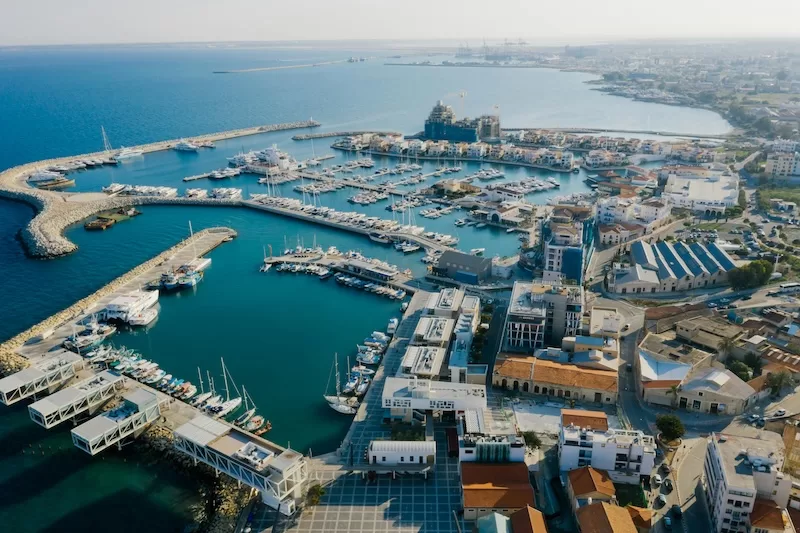
Nicosia
Best for: career-focused expats, culture lovers, lower housing costs
In Nicosia, history shapes the skyline. Venetian walls wrap around the Old Town, where galleries and tiny bars squeeze into centuries-old corners. During the day the capital buzzes with government offices, financial firms, universities and embassies. Evenings unfold more gently: shaded courtyards, films projected outdoors, concerts in pocket-sized theaters.
There is no coastline here. But residents trade beach proximity for cultural richness. Streets host bookstores, independent coffee roasters, casual restaurants where staff quickly learn your order, and bakeries that spill out the smell of cinnamon and tahini.
Budget-wise, Nicosia feels generous. Expats often find bigger apartments or calmer neighborhoods without compromising convenience. Life is urban but not frantic. People who appreciate museums as much as sunshine tend to stay.

Paphos
Best for: retirees, remote workers, families who want nature and space
Paphos is the kind of place where history sits out in the open. Ancient mosaics lie a short stroll from contemporary coffee shops. Sea breezes cut through archaeological parks that locals treat as their extended backyard. Fishing boats rock gently in the harbor every morning, and the market nearby carries fresh halloumi, herbs and tomatoes that smell like they grew in hot sun.
Children bike along quiet sidewalks without constant traffic noise. Remote workers find focus in the calm. Beaches are close enough for a spontaneous swim between Zoom calls. Social life often builds around neighborhood routines: a chat at the bakery, weekend gatherings in shaded taverns, and regular beach days that turn into late dinners as the sky goes rose-gold.
Paphos also respects the budget. Guides commonly suggest a family of four spends about €2,600 per month excluding rent. That breathing room allows choices: language classes for kids, dinner out more than once a week, and travel around the island when curiosity strikes.
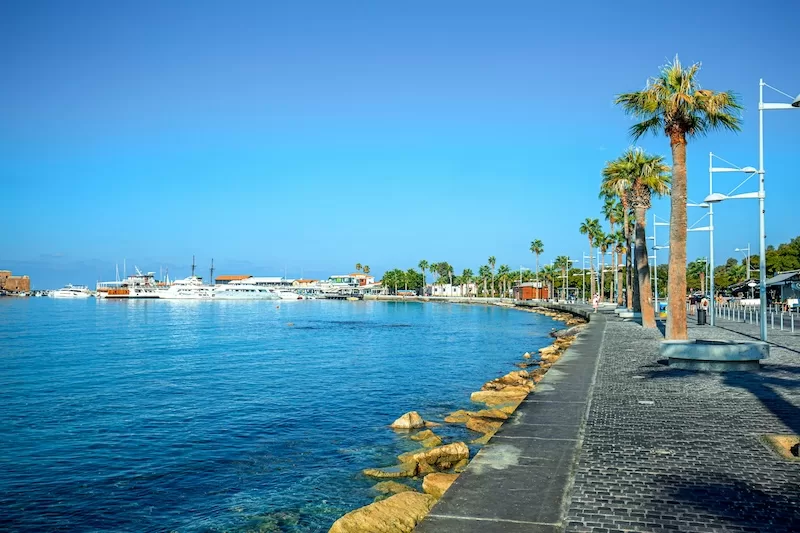
Larnaca
Best for: frequent fliers, digital workers, coastal calm at reasonable cost
Larnaca feels lived-in in the best way. The sea is always present, glimmering beside palm-lined Finikoudes promenade, a place where everyone eventually crosses paths. Remote workers set up with laptops on café terraces. Restaurant servers greet regulars by name after just a few visits.
The airport sits close, making weekend trips to Athens or Vienna feel easy instead of indulgent, but the city remains calm: planes come and go, but life keeps its relaxed tempo. People stroll slowly in the evenings, especially when the salt lake glows pink with flamingos in winter.
Housing is fairer on the wallet than in Limassol. Many expats find neighborhoods where the sea is a short walk away, but costs stay manageable. Larnaca suits those who want a city that feels like a small town at the edges.
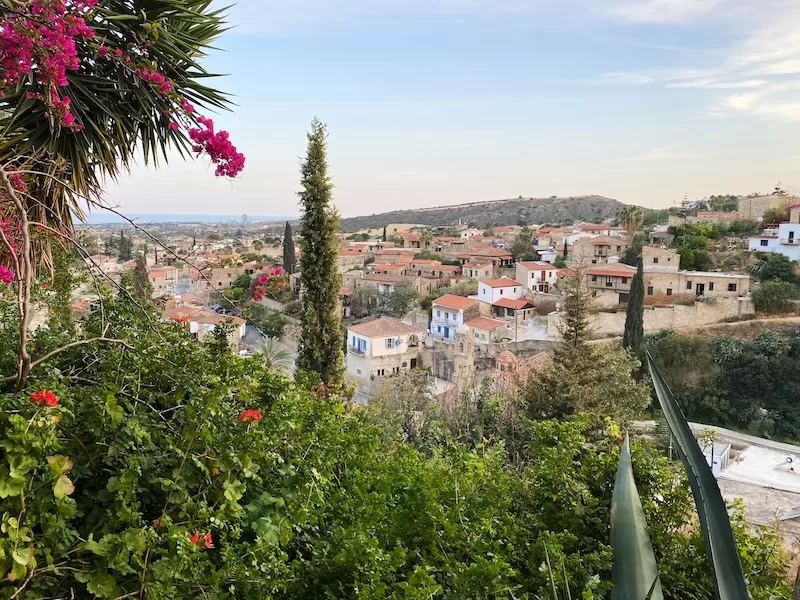
Ayia Napa & Protaras
Best for: seasonal living, beach-centric lifestyles
Turquoise water is the main event, and life flows around it. Summer in Ayia Napa and Protaras feels festive: music from beach bars, boats pulling into coves, families sharing grilled fish on open terraces. The coastline gives access to some of the clearest swimming spots in Cyprus, including beaches like Nissi and Fig Tree Bay.
As autumn arrives, crowds thin and peacefulness takes over. Off-season months reveal a different side: morning swims with only fishermen for company, long coastal walks when sunsets turn copper, and housing prices that dip into more comfortable range. Groceries, gyms and essentials remain accessible thanks to a year-round local population.
These towns appeal to those who measure quality of life by proximity to saltwater. If your happiest days involve paddleboards, sunscreen and sand still stuck to your feet at dinner, this region supports that version of living. Just expect the social atmosphere to shift with the calendar.
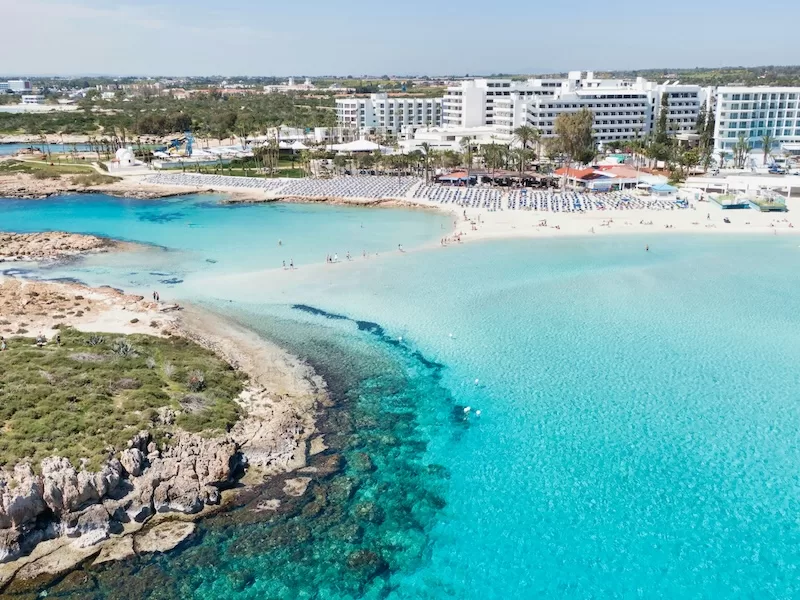
Quick City Selector
| City | Best For | Vibe Summary |
| Limassol | Professionals & entrepreneurs | Energetic, modern, premium coastal living |
| Nicosia | Culture & career | Historic, social, more affordable urban base |
| Paphos | Families & retirees | Relaxed, scenic, budget-friendly lifestyle |
| Larnaca | Digital workers & frequent fliers | Practical coastal city with neighborhood feel |
| Ayia Napa / Protaras | Beach lovers & seasonal residents | Summer buzz, winter calm, extraordinary coastline |
Practical Take-aways for readers
- If your budget is tight but you want coastal living, Paphos offers one of the best cost-to-lifestyle ratios.
- If you prioritize job market, international schools or high-end amenities, Limassol delivers but expect higher bills.
- For balance between cost and infrastructure, Nicosia and Larnaca both present strong alternatives.
- Always factor in rent as your largest variable. Living costs excluding rent may seem manageable, but central flats or premium locations raise totals quickly.
Which Cyprus Lifestyle Fits You?
Choosing Cyprus is one thing. Choosing how you’ll live in Cyprus is another. The island accommodates very different kinds of life. Below are five common expat profiles: find the one that feels closest and use it as a guide.
1. Remote Worker / Digital Nomad
Where you’ll thrive: Larnaca, Paphos, quieter suburbs of Limassol
What you want: Reliable internet, access to cafés and co-working spaces, good cost-to-lifestyle ratio
Ideal budget: €1,800-€2,500 per month including rent
Things to check:
- Fiber-optic or high-speed mobile internet in your apartment
- Proximity to airport (Larnaca is advantageous)
- Community of other remote workers for social rhythm
Why this life fits Cyprus: After your “business hours” you’re already on sea front, not stuck in a transit queue.
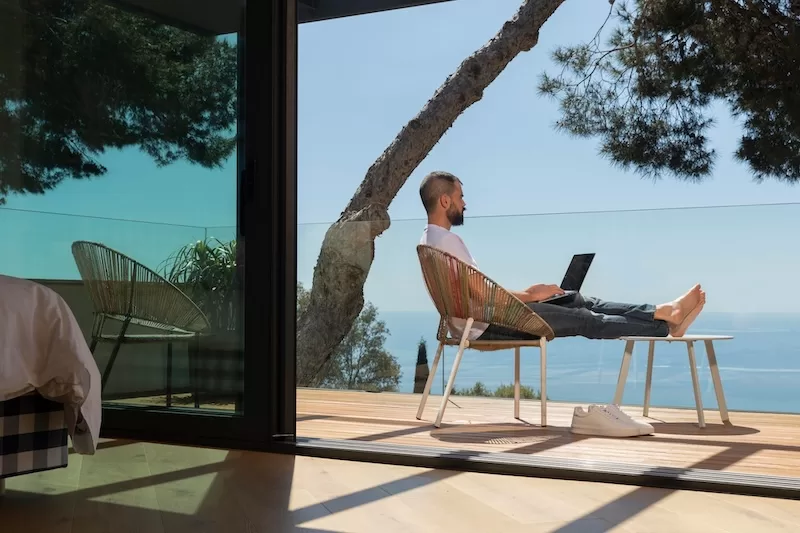
2. Young Professional / Entrepreneur
Where you’ll thrive: Limassol (business hub), Nicosia (capital, network-rich)
What you want: Access to industry, networking, a social life, ambition + Mediterranean surroundings
Ideal budget: €2,800-€4,000+ per month depending on apartment
Things to check:
- Coworking spaces, startup events
- Apartment walkable to nightlife or cafés
- Tax setup for personal income + business
Why this life fits Cyprus: Live by the sea, but still in a zone where deals, meetings and growth feel natural.
3. Family with Children
Where you’ll thrive: Paphos (space + schools), Limassol (international schools, amenities)
What you want: Safety, good schooling, outdoor activities, room for weekend exploration
Ideal budget: €3,500-€5,000+ per month depending on school fees & housing
Things to check:
- International school curriculum (British, American, IB)
- Safe neighborhoods, parks, beach access
- Healthcare proximity for kids
Why this life fits Cyprus: Kids can grow bilingual, afternoons can become beach time, weekends are mapped easily into nature.
4. Retiree or Semi-Retiree
Where you’ll thrive: Paphos, Larnaca, Ayia Napa/Protaras (for sun and calm)
What you want: Ease, community, sunnier days, lower-stress schedule
Ideal budget: €2,500-€3,500 per month excluding leisure travel
Things to check:
- Residency permit or retirement route
- Proximity to clinics/hospitals
- Local expat community for social connection
Why this life fits Cyprus: Mediterranean pace, reliable climate, manageable size—easy to call home.
5. Seasonal / Split-Base Lifestyle
Where you’ll thrive: Ayia Napa / Protaras (summer), alternative inland home for winter
What you want: Sunshine, beach-focus, maybe work elsewhere part of year
Ideal budget: Varied—€2,000-€3,000 in off-season, more in high season
Things to check:
- Lease flexibility and seasonal rent changes
- Storage for goods when you travel or move out for part of year
- Local relationships / integration when you are present
Why this life fits Cyprus: When you want a spectacular coastal base rather than full relocation.
Daily Life in Cyprus: Language, Culture & How People Move Around
Language and everyday connection
English works almost everywhere in Cyprus. Supermarket conversations, banking, casual chats at a café, all easy. That said, a handful of Greek words change the mood instantly. A friendly kalimera in the morning or an efharistó at the market often earns not just a smile, but a genuine welcome. Locals appreciate the effort, even if the pronunciation wobbles.
Everyday life leans outdoors. Breakfast might be a spanakopita and a freddo espresso enjoyed on a shaded terrace. Neighbors chat from their balconies. Children play in courtyards until the light fades. The island feels social in a grounded, low-pressure way. People take time to talk and look up from their phones. It gives daily errands a human texture.
Cyprus has a way of helping strangers become familiar faces. The baker remembers your favorite bread. A waiter asks how you’re settling in. If you skip your usual café for a week, someone notices. What begins with convenience becomes connection.
Social circles build around simple rituals. School drop-offs turn into beach meetups. Expats meet through hiking groups, diving schools, informal business breakfasts or evening strolls along the promenade.
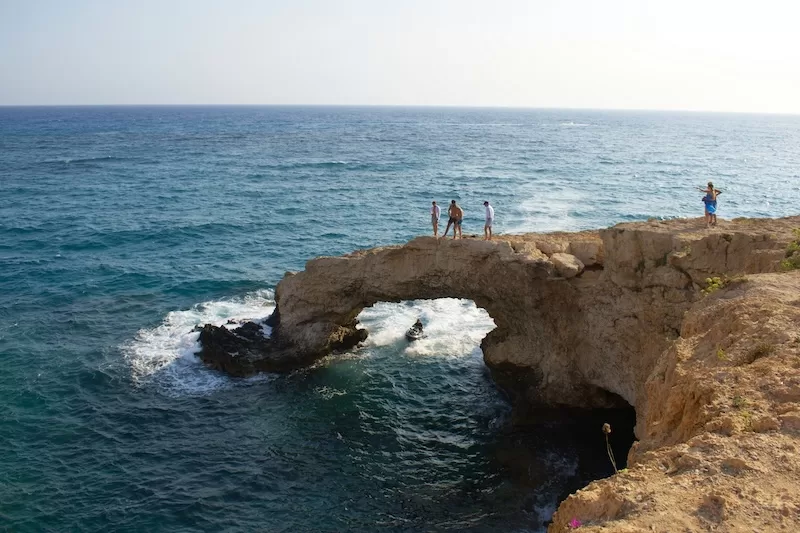
Weekend plans rarely require formal scheduling. Someone sends a message about a new tavern in the hills, and suddenly you’re at a long wooden table passing plates of grilled halloumi and lemon-dressed fish. There is a looseness to the culture that allows friendships to grow in everyday moments.
Transport and mobility
Cyprus is a driving island. Buses exist, though in places like Nicosia only 3% of trips use them. Car ownership simplifies life and lets the island unfold in small discoveries: a roadside fruit seller, a turnoff that reveals a hidden beach, a peak in the Troodos that seems to appear out of nowhere.
Distances stay small. Twenty minutes can mean the difference between downtown errands and toes in sand. Even commutes feel manageable because scenery replaces stress with eucalyptus groves, glimpses of sea, an old monastery tucked into hills.
Parking deserves consideration when choosing a neighborhood. Older town centers trade charm for tight street layouts. But if your home sits a little inland, you often get more space, easier parking and quiet nights while still reaching the coastline easily.
Mobility means access to nature, to history, to small joys that fit between the responsibilities of the day.
Weather, Seasons & Personal Safety
In Cyprus, summers stretch long and deliberate. Expect high-temperature days exceeding 32 °C (90 °F) in some inland zones. Come winter, nights drop enough that older homes with minimal insulation feel chilly, and you’ll appreciate the central heating you installed. Spring and autumn are favorites for locals, a time when the crowds fade, the sea remains swimmable, and the light gives everything a golden sheen.
Safety-wise, the island records lower rates of serious crime compared with many large European urban areas. Walking home after dinner from a beachfront tavern feels comfortable, though sensible precautions apply: keep valuables out of sight, lock your car and be alert in quieter areas after midnight.
Driving is relaxed but receives bumps during tourist season when coastal roads can get busy. Hillside and rural homes bring the joy of serene nights but may require extra care: reliable flashlights, insect sprays, and checking for snakes near olive groves during certain months. When heavy rain comes in winter, some rural roads may flood.
In short: the climate invites outdoor living, and personal safety rarely intrudes, but respect the environment, plan for seasonal shifts and your stay becomes richer for the ease and security you’ll find.
Challenges and Things to Look Out For
Even the most promising relocation needs a realistic checklist. Cyprus delivers sea breezes and calmer living, but your best move is one made with open eyes. Here’s what to expect and how to navigate it.
Transport limitations
Public transport covers basic needs, though it does not replace a full metro or train network. In Nicosia, only around 3% of journeys rely on buses. Most expats eventually rely on a car to keep life smooth, especially if kids’ activities, late dinners or beach detours are part of the plan.
Pro Tip: When house-hunting, test-drive your potential commute during peak hours. If you choose the center, consider a parking-included rental to avoid the daily hunt.
Paperwork and patience
Setting up residency, utilities, healthcare and bank accounts requires persistence. Offices can move at island tempo. A missing document can add weeks.
Pro Tip: Bring multiple copies of everything: passport, lease, proof of income, bank statements. A relocation agent or lawyer is often worth the fee for avoiding delays.
Seasonal price shifts
Tourism seasons shape rental costs, restaurant pricing and even availability of certain services. Summers introduce more demand and sometimes more noise. Winters restore serenity.
Pro Tip: If moving mid-season, request leases with annual pricing, not seasonal adjustments. Visit your neighborhood both in summer and off-season before committing.
Job market realities
Professional opportunities cluster in specific fields: tech, finance, maritime industries, tourism and hospitality. Remote workers have an easier path; those seeking local roles benefit from groundwork beforehand.
Pro Tip: Join industry networking groups before arriving. Many expat jobs come through community connections rather than job listings.
Integration takes effort
English covers logistics and social basics. But deeper roots take curiosity. Staying only in expat spaces can feel safe but limits connection.
Pro Tip: Learn small Greek phrases weekly. Say yes to neighborhood events. Join one local hobby (hiking groups, dance classes, pottery studios) to build genuine bonds.
Fair employment protections
Some international reports note concerns around migrant labor conditions in certain sectors. Keeping your residency status and contracts secure protects you and supports ethical standards.
Pro Tip: Before signing anything, request written terms in English and verify them with a lawyer familiar with Cyprus labor law. If something feels unclear, pause and clarify.
Planning Your Move: a Checklist for Living in Cyprus
Moving to Cyprus goes beyond sorting paperwork and comparing rent. This checklist helps you plan with confidence before your suitcase touches the floor.
1. Set your timing and your budget early
Timing changes first impressions. Summer introduces the island at full volume. Winter shows how life unfolds when the crowds leave.
When to visit before committing
• May–June: beach weather without peak prices
• September–October: warm seas, quieter tourism zones
• January–February: see how your future home feels in the calm season
What monthly budget to expect
These ranges reflect comfortable living, not bare-bones survival:
• Single expat: €2,000–€2,700 per month including rent
• Couples: €2,800–€3,500 per month
• Families: €3,500–€4,500+ depending on schooling, location and car needs
Budget differently by city: Limassol > Larnaca > Nicosia ≈ Paphos
Pro Tip: Add a 10% buffer for your first year. Unexpected costs appear when routines are still forming.
2. Choose your city based on lifestyle, not just price
The island is compact, but each region feels distinct.
Ask yourself:
• Do you want city cafés or shoreline quiet?
• Do you want nightlife or neighborhood calm?
• How close do you want to be to the airport for travel home?
Use the earlier “City Selector” chart to match personality to place. If staying long-term, spend at least a week in your top two picks. Walk them at night, too.
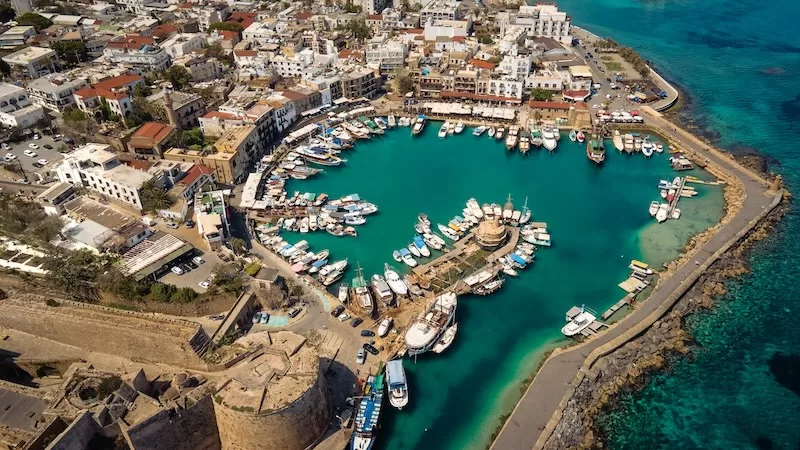
Pro Tip: Look at where you will buy groceries, not where you will swim. Daily convenience shapes happiness more than beach access alone.
3. Secure housing with eyes open
Rent swings widely depending on coast proximity, schools and season.
Checklist for successful searching:
• View properties in person. Photos rarely show street noise or steep staircases
• Consider parking if near busy centers or older neighborhoods
• Ask landlords about full-year pricing vs tourist-season spikes
• Check distance to supermarkets, not just beaches
Useful search tactics:
• Join community Facebook groups for neighborhood tips
• Connect with one or two reputable agents recommended by expats
Pro Tip: If working from home, test your mobile signal and internet reliability inside the property before signing.
4. Establish your banking and finances early
Sorting money matters removes stress faster than anything else.
Steps to take:
• Open a local bank account once you have a lease (eases utility setup)
• Notify your home bank about your move to avoid frozen cards
• Confirm your tax residency timeline so you do not double-pay taxes unintentionally
Pro Tip: Choose a bank branch close to home. Simple errands feel easier when help is a short walk away, not a drive.
5. Take charge of your healthcare
Healthcare options vary and knowing where to go brings peace of mind.
Plan for this:
• Register for GeSY if eligible to access the public system
• Add private insurance for shorter wait times and wider specialist choice
• Locate nearest pharmacies and urgent-care clinics before you need them
Pro Tip: Ask neighbors for doctor and dentist recommendations. Locals will point you to people they trust.
6. Prepare for daily essentials
Small decisions early prevent future frustration.
To-do list:
• Arrange a local SIM card for cheap data and smooth GPS use
• Stock your home with basics as soon as you arrive (air conditioning makes heat manageable, and winter can still surprise you in older homes)
• Learn where to shop for imported goods vs local produce. Upscale grocery stores and weekly markets balance each other
Pro Tip: Keep a beach bag ready by the door. In Cyprus, free time often turns into sea time with zero planning.
7. Build your community from day one
Expats thrive here because connection comes naturally, but it still takes one step forward.
Simple ways to start:
• Join a language group. Even beginner Greek creates real belonging
• Introduce yourself to neighbors. Cypriot hospitality is real
• Join a club: hiking, diving, surfing, dancing, pottery, football
Pro Tip: Your best friendships often appear in the most ordinary places: the bakery you visit weekly or the café where you choose to be a regular.
8. Keep curiosity as your compass
Living abroad changes you only if you let it. Try new foods. Explore inland villages. Ask questions. Notice what slows the pace of your day. Cyprus rewards anyone willing to look beyond the shoreline.
FAQs
Q1: How much does a one-bedroom apartment cost in Cyprus?
In cities like Limassol and Nicosia, expect rents around €800-€1,100 per month for one-bedrooms in central areas. What that often feels like on the ground: you wake up, step out onto a compact balcony with sea or city view, then walk three minutes to a café where the espresso hits just right. But you also pay a premium for easy access, view and convenience. If you shift a few miles inland or choose a building built a decade earlier, rents may drop by 10-20 %. Always walk around the neighborhood, hear the noise levels, check the late-night foot traffic.
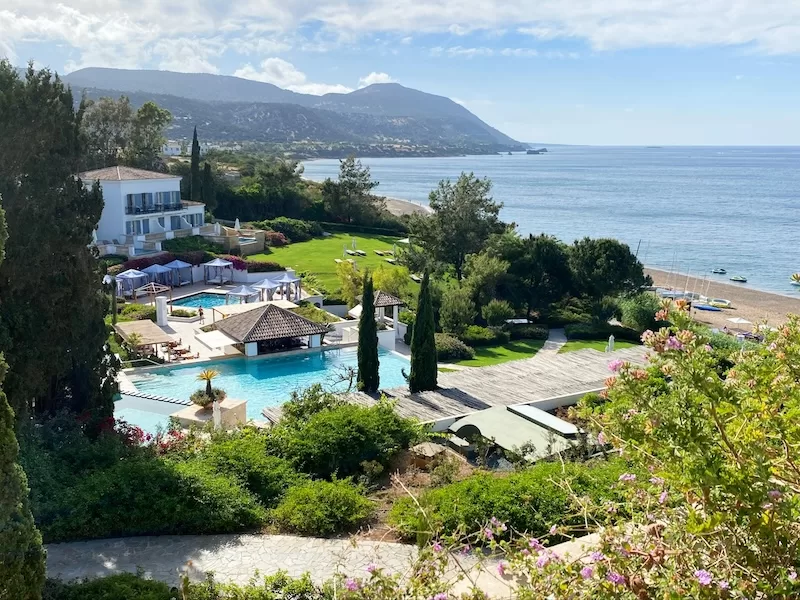
Q2: Is the cost of living in Cyprus lower than in the US?
For many expats coming from the United States, yes. Housing, healthcare and everyday services often cost less than in major US cities. Dining out can feel pleasantly affordable, and a well-located apartment may not consume the same share of your budget as in coastal America. That said, imported products sometimes cost more, so grocery bills depend on taste and brand loyalty.
The net effect: you may live closer to the sea, enjoy more weekend adventures and still spend less than in large US metros such as San Francisco, Los Angeles or Boston. Budget stretch increases lifestyle flexibility.
Q3: Can non-EU nationals work remotely while living in Cyprus?
Generally yes, especially if they obtain a residence permit that allows remote income. But local tax rules and visa requirements must be confirmed case by case.
Q4: What about healthcare for expats in Cyprus?
The General Health System (GeSY) covers eligible residents; many expats also use private healthcare. Budgeting €200-€300 per month for private family insurance is common.
Q5: Is public transport reliable for everyday life in Cyprus?
Not always. Many residents rely on cars; in some regions bus service is limited. Proximity to amenities and availability of parking become important when choosing location.
Q6: How easy is it to bring pets or animals to Cyprus?
Bringing a dog or cat to Cyprus takes a few steps, but integration becomes surprisingly smooth. Pets must have a valid EU pet passport or equivalent, be microchipped, up to date on vaccinations (including rabies) and meet entry-clearance conditions. If you plan to live near the coast, check lease rules on pets and if there’s nearby green areas for exercise. Pro Tip: Choose a vet and register your pet in the first week of arrival.
Q7: Is the schooling system good for children of expats in Cyprus?
Yes, there are strong options. International schools (British, American, IB curriculum) are available in all major cities. Local Cypriot schools also welcome expatriate children and often support English speakers in transitioning. Tuition ranges vary significantly (€6,000-€20,000+ per year) depending on grade and school. Pro Tip: Visit the school in person, talk to current parents and measure commute time. Even a 15-minute drive each way adds up when you’re factoring after-school activities and evening dinner routines.
Q8: How good is the Wi-Fi and digital infrastructure in smaller towns in Cyprus?
In both major cities and many smaller towns, digital connectivity in Cyprus is solid and improving. Fibre-optic internet is available in many urban areas, offering speeds of up to 1 Gbps in some cases. In coastal towns and rural villages, you may find slightly slower speeds or more limited provider options, but service remains reliable for remote work, streaming, and cloud-based collaboration. Pro Tip: Before signing a lease, test the internet speed in the apartment at the time of day you expect to work (e.g., 9 a.m. to 6 p.m.). Ask the landlord/document what provider services the building supports and if there’s any fibre connection. If you depend on uploading large files, budget €30-€50/month for a “premium remote work plan” from a top provider.
Your New Chapter by the Waterline
The idea of living in Cyprus conjures sunlit mornings, sea-edge cafés and late-afternoon breezes down olive-lined lanes. But it also demands realistic budgeting, local practicality and decision-making that make any relocation successful. The cost of housing matters. Visa status matters. Local culture, language and rhythm matter. For those ready to dive, Cyprus presents a chance to live with purpose and pace. If your mind is turned toward this island life, the next step is to hone your budget, select your city, check visa rules and plan that first visit.
If you found this guide useful, consider subscribing to our newsletter for updates and tips on expat-living around the world.
Contact Author
"*" indicates required fields
Stay Ahead on Every Adventure!
Stay updated with the World News on Escape Artist. Get all the travel news, international destinations, expat living, moving abroad, Lifestyle Tips, and digital nomad opportunities. Your next journey starts here—don’t miss a moment! Subscribe Now!
